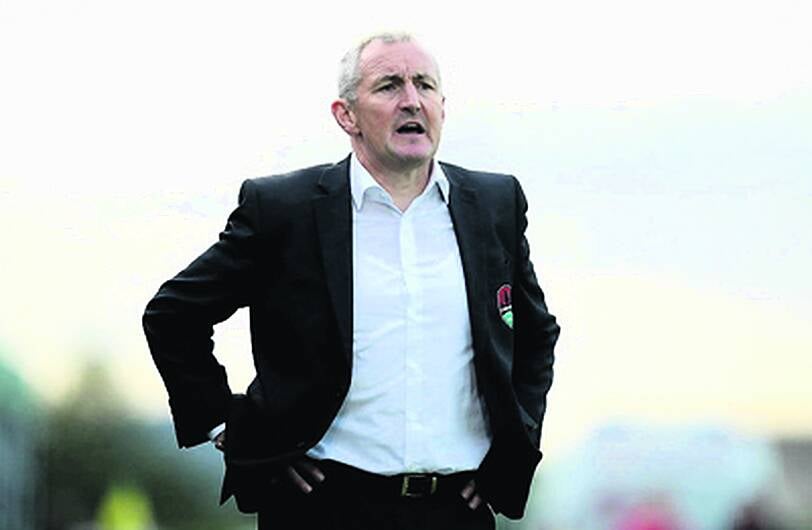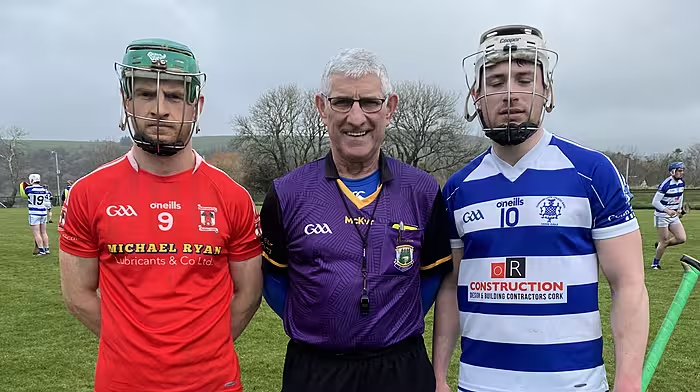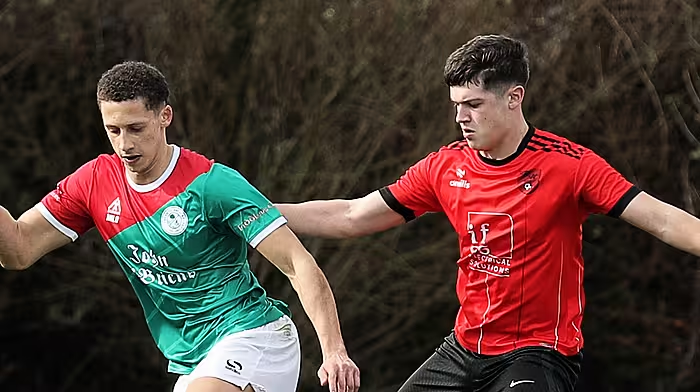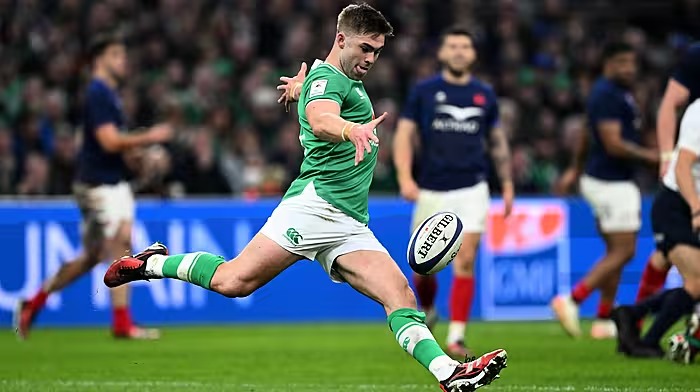Cork City manager – and Enniskeane resident since 1985 – John Caulfield will be inducted in the West Cork Sports Star Hall of Fame this Saturday night. DENIS HURLEY spoke to two men who know Caulfield well to get the inside track
Cork City manager – and Enniskeane resident since 1985 – John Caulfield will be inducted in the West Cork Sports Star Hall of Fame this Saturday night. DENIS HURLEY spoke to two men who know Caulfield well to get the inside track on the City legend
WHEN Cork City manager John Caulfield sat down with The Southern Star before Christmas to reflect on an excellent 2017 season when he led the club to the league and FAI Cup double, he laid out the importance of the special bond he has with the club.
‘It’s not like I need the job,’ he said.
‘Could I go and manage another League of Ireland club? I could but, if I was brutally honest about it, I’d only care about the first team.
‘Here, I run the whole football side of operations, on the basis we want to bring players through and make them better and we have Cork City men involved with the underage teams.’
Such an attitude with regard to the club as a whole underpin Caulfield’s whole approach, and it’s little wonder that current City operations manager Éanna Buckley and former team-mate Philip Long cite his attention to detail.
‘I’ve been lucky over a period of time doing the job to have had dealings with guys like John, Deccie Daly, players from that era when I first started going to games,’ Buckley says.
‘How I first got to know John was when he first started bringing kids up from Riverside to play at half-time and then he was inducted into the Hall of fame.
‘I’ve obviously worked with a lot of managers and everyone has their own style, but, in terms of what he puts into it and his attention to detail, I’ve never seen anyone like him.
‘Every last little thing – from my own point of view, dealing with buses and hotels, there are questions that John asks, things he’ll have looked at, that other managers probably weren’t even aware were going on.
‘He wants to know about things and make sure they’re right, that’s obviously reflected in the success he’s had.’
Long backs up that view. Having joined City together in 1986, they spent a lot of time together and bus trips back from away games were a chance for Caulfield to put forward theories that would later be put into practice.
‘You knew that he was destined to become a manager,’ Long says.
‘His attention to detail that time was great as well. We used to be always talking on the bus on the way back from matches about what had happened, “We should have done this or that”.
‘You’d have a bit of that with all of the players as such, but John would go into it more.’
Now, as the man patrolling the sideline and picking the team, it’s Caulfield’s job to pass on the City ethos. A club’s culture won’t just travel by osmosis and Buckley regularly witnesses Caulfield challenging his players to represent the Rebel Army to the best of their ability.
‘I think it’s a mantra for him to remind the players how lucky they are to be playing for Cork City, that it’s a privilege,’ he says.
‘It’s a job at the end of the day but I don’t think John is shy in telling fellas they’re lucky to be playing for the club at this period in time and to enjoy every minute of it.
‘It’s not to put pressure on them but it’s to say, “Look, you may never experience this again in your career, make the most of it,”.’
And it’s not just cheap talk, either. Long recalls how, three decades ago, Caulfield transformed himself as a player before going on to become one of the club’s best strikers.
‘Myself, Patsy Freyne and John all joined together in 1986,’ he says.
‘Noel O’Mahony and Mickey Punch were the manager and assistant manager, John was with Mickey at Wembley at the time – playing right-full – and he went from there to City.
‘He spent a lot of time on the bench as City’s right-full was Barry Neiland, who was doing well. John was coming in off the bench occasionally and then he was tried on the wing and then up front and the rest is history.
‘It’s a testament to his character because he’d always give you 110 percent. He never really put on weight, that was a big bonus, and he never got any serious injuries.
‘He was great in the dressing room, he was always buzzing around the place. You can still see that on the sideline nowadays.’
Ask Buckley to put a number on how many hours Caulfield puts in in a given week and he struggles to calculate it.
‘Genuinely, I’d say the only time he actually switches off is when his head hits the pillow,’ he says.
‘It probably sounds like a bit of a cliché but you could wake up in the morning and have a text from John from any hour of the day or night. If something comes into his head, he wants to deal with it.
‘Everyone’s entitled to a lift and all the rest of it and with other managers it might be training Monday, Tuesday, Thursday and a game Friday and you wouldn’t see them on a Wednesday but John is in his office pretty much every day.
‘If he’s not in his office, it probably means he’s up the country or meeting someone or watching a game. He just doesn’t stop, really.’
And yet, a man can work all of the hours in the world but that doesn’t necessarily make it any easier to take decisions.
In his former colleague, Long sees someone who’s not afraid in that regard, but also willing to listen to advice from all quarters before making a call.
‘He’s very shrewd and he’d always listen to people,’ he says, ‘but you’d never know what’s going on in his head.
‘He’s listen to anyone and then make up his own mind. He’s a great thinker and his analysis of the game is very good as well. He wouldn’t bring in players unless there was a spot for them.
‘He’s at the top now where League of Ireland is concerned. It’s a matter of staying there which is the problem, but he’s quite capable of doing that!’







